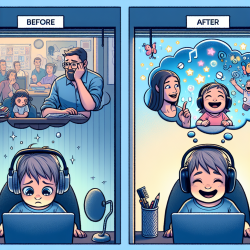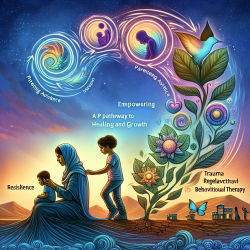Introduction
As practitioners in the field of speech-language pathology, our mission is to foster the best possible outcomes for children. The Siyakhula Cohort Study, conducted in rural South Africa, provides valuable insights into child development, particularly in contexts of HIV exposure and early life factors. This blog aims to translate these findings into actionable strategies for practitioners, enhancing the effectiveness of interventions and encouraging further research.
Understanding the Siyakhula Cohort
The Siyakhula Cohort Study, as part of the Canadian Grand Challenges ‘Saving Brains’ initiative, investigates the developmental outcomes of 1,536 HIV-negative children. These children, born to both HIV-infected and uninfected mothers, were studied to understand the impact of early life factors such as breastfeeding and HIV exposure on later health and cognitive outcomes.
Key Findings and Implications
One of the standout findings from the Siyakhula Cohort is the association between exclusive breastfeeding (EBF) and improved cognitive and behavioral outcomes. While previous studies have shown conflicting evidence, this cohort suggests that EBF may reduce conduct disorders and enhance cognitive development, particularly in boys. For practitioners, this highlights the importance of promoting breastfeeding as a key intervention in early childhood development.
Additionally, the study found that HIV-exposed but uninfected children performed comparably to their unexposed peers in cognitive and emotional domains. This challenges the assumption that HIV exposure alone significantly disadvantages child development, emphasizing the need for nuanced approaches in therapeutic settings.
Data-Driven Practice: Implementing Research Insights
For speech-language pathologists, integrating these findings into practice involves several steps:
- Promote Breastfeeding: Encourage and support breastfeeding as part of early intervention programs, recognizing its potential benefits for cognitive and behavioral development.
- Tailored Interventions: Develop individualized intervention plans that consider the child's exposure to HIV and other early life factors, ensuring that therapeutic approaches are data-driven and evidence-based.
- Monitor Developmental Milestones: Use standardized assessments to monitor cognitive and behavioral development, adjusting interventions as needed to address specific challenges identified in the cohort study.
Encouraging Further Research
The Siyakhula Cohort Study underscores the importance of longitudinal research in understanding child development. Practitioners are encouraged to engage in or support further research efforts, particularly those that explore the long-term effects of early life interventions. By contributing to the body of knowledge, we can refine our approaches and improve outcomes for children globally.
Conclusion
The Siyakhula Cohort Study offers valuable insights that can enhance our practice as speech-language pathologists. By integrating these findings into our interventions and supporting further research, we can make a meaningful impact on the developmental trajectories of children, particularly those in high-risk populations.
To read the original research paper, please follow this link: Cohort Profile: The Siyakhula Cohort, rural South Africa.










